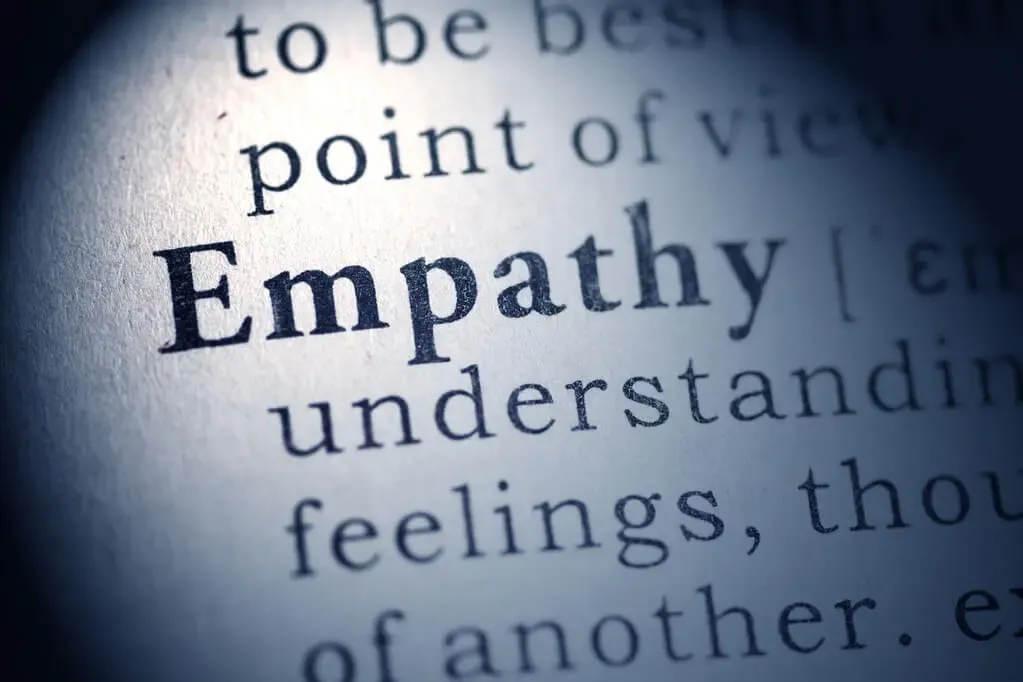The Importance of Compromising in Relationships
In any relationship, whether it be a romantic partnership, friendship, or family connection, compromise is essential for maintaining a healthy and meaningful bond. It is through compromise that individuals find common ground, enabling effective communication and a deeper understanding of one another.
The purpose of this article is to shed light on the importance of compromising in relationships and provide guidance on how to find a balance that ensures both parties feel heard, valued, and satisfied.
By exploring the different aspects of compromise in daily life, from decision-making to future plans, we can uncover the foundations of trust, create a strong and productive dialogue, and ultimately strengthen the relationship as a whole.
Whether it’s negotiating parenting styles, addressing emotional health, or navigating differing opinions, the ability to compromise is key in building a successful and fulfilling connection.
So, let’s delve into the world of compromise and discover how it can enhance the quality of our relationships and our overall sense of well-being.
What is Compromise?
Compromise is a fundamental aspect of any healthy and successful relationship. It involves finding a balance between individual needs and the needs of the partnership. In a compromise, both partners make concessions and adjustments to create a mutually beneficial solution. It requires open communication, understanding, and a foundation of trust.
Compromise is about finding common ground, expressing needs and concerns, and actively listening to your partner. It is a process that helps to deepen the connection and create a strong foundation for a fulfilling and meaningful relationship.
Definition of Compromise
Compromise is the act of finding a middle ground in a relationship by both parties being willing to give up something. It is an essential component of building and maintaining healthy relationships.
Mutual Agreement
When two individuals have differing opinions, desires, or needs, compromise allows them to come to a mutual agreement that satisfies both parties. It requires open communication, understanding, and a willingness to make concessions.
Finding Balance – a give and take approach
In essence, compromise is about finding a balance that respects the needs and wants of both individuals. It is not about one person consistently sacrificing their own desires or needs for the other. Instead, it involves a give-and-take approach in which both individuals make small adjustments to meet each other halfway.
Compromise is vital because it fosters a sense of equality, mutual respect, and understanding within a relationship. It prevents conflicts from escalating and promotes effective communication. By finding common ground, compromise allows individuals to work together to achieve shared goals and navigate the challenges that arise in their relationship.

The Key to Building Healthy Relationships
Compromise is the key to building a healthy, harmonious relationship. It is a process that promotes understanding, communication, and mutual satisfaction. By embracing compromise, individuals can create a strong foundation of trust and cooperation, ultimately leading to a fulfilling and lasting partnership.
Types of Compromise
Types of Compromise in Relationships:
1. Time compromise: This involves finding a balance between the time spent on individual pursuits and quality time spent together as a couple. For example, agreeing to have designated date nights or allocating specific “me time” for each partner.
2. Financial compromise: This type of compromise involves finding a middle ground when it comes to financial decision-making and budgeting. For instance, setting a monthly budget together and discussing major purchases before making them.
3. Decision-making compromise: In any relationship, decisions need to be made jointly. This compromise is about finding a balance where both partners have a say in important life choices, such as career moves or major purchases. Examples include seeking input from both partners and finding a solution that satisfies both parties.
4. Emotional compromise: Emotional compromise entails understanding and validating each other’s emotions, even if they differ. It involves being empathetic and willing to compromise on how to handle emotional situations. For instance, one partner may prefer talking through emotional issues, while the other may need some space to process before having a conversation.
5. Compromise in personal goals: This type of compromise involves aligning personal goals with the goals of the relationship. It requires understanding and supporting each other’s aspirations while finding ways to incorporate them into the shared vision of the relationship. For example, if one partner wants to pursue further education, the other might compromise by assisting with household responsibilities or adjusting their own goals to accommodate the partner’s pursuit.
Each type of compromise mentioned above plays a crucial role in maintaining a healthy and balanced relationship. By recognizing these various types and actively engaging in compromise, couples can cultivate understanding, respect, and harmony while working towards shared goals and navigating the challenges that arise.
Foundations for a Healthy Relationship
In order to build and maintain a healthy relationship, it is essential to establish strong foundations that promote trust, understanding, and effective communication. These foundations serve as the bedrock upon which a successful relationship can thrive.
Common Ground
Establishing common ground in a relationship is crucial for building a strong and fulfilling connection. Finding shared interests and values forms the foundation upon which a couple can build their relationship. It allows them to connect on a deeper level and understand each other’s needs and desires.
Open and Effective Communication
One key factor to establishing common ground is open and effective communication. Couples should engage in productive conversations where they actively listen to each other’s viewpoints and concerns. This helps create a deeper understanding and promotes compromise.

Compromising
Compromising is another essential strategy in finding common ground. Both individuals must be willing to meet halfway and make concessions in order to reach mutual agreement. This involves considering each other’s perspectives and finding solutions that cater to both parties’ needs.
Seeking Shared Interests and Values
Seeking shared interests and values also leads to a more fulfilling relationship. It provides opportunities for couples to engage in activities they both enjoy and creates a sense of shared identity. Having shared values ensures that both individuals are aligned in their goals and future plans, promoting a stronger bond.
Establish a Healthy and Meaningful Connection
Establishing common ground in a relationship through shared interests, values, compromising, and mutual agreement is vital for a healthy and meaningful connection. It promotes understanding, fosters emotional closeness, and builds a strong foundation of trust and compatibility.
Mutual Understanding
Mutual understanding also plays a crucial role in establishing a strong and healthy relationship. It involves the ability to empathize with and comprehend the thoughts, feelings, and perspectives of your partner. When both individuals in a relationship have a mutual understanding, it allows for a deeper connection and enhances the overall quality of the relationship.
Active Listening
To foster mutual understanding, couples can employ several strategies. Active listening is a vital tool in this process. By truly listening to your partner without interruption and validating their feelings, you can create an atmosphere of trust and openness. This helps your partner feel heard and understood.

Practicing empathy is another essential strategy. Putting yourself in your partner’s shoes and genuinely trying to understand their experiences and emotions helps build connection and compassion. This enables you to respond with empathy and support, strengthening the bond between you.
Seeking clarity is also important for mutual understanding. When there are disagreements or misunderstandings, it is essential to ask clarifying questions to gain a deeper comprehension of your partner’s perspective. This helps avoid assumptions and promotes effective communication.
Fostering Mutual Understanding
Fostering mutual understanding is fundamental in a relationship. By actively listening, practicing empathy, and seeking clarity, couples can develop a deeper connection and empathy for each other. This mutual understanding enhances the overall quality of the relationship and provides a solid foundation for a fulfilling and long-lasting partnership.
Foundation of Trust
In any healthy relationship, the foundation of trust is vital. Trust serves as the bedrock upon which emotional connection and intimacy are built. It forms the basis for open communication, vulnerability, and mutual understanding.
Sense of Security and Safety
Trust creates a sense of security and safety within a relationship. When partners trust each other, they feel confident in sharing their thoughts, feelings, and desires without fear of judgment or betrayal. This level of openness fosters a deeper emotional connection and intimacy, as both partners are able to be their authentic selves.
Cultivating Trust
To cultivate trust in a relationship, several practical steps and behaviors can be implemented. Firstly, honesty is crucial. Being open and truthful with your partner builds trust and demonstrates a commitment to transparency.
Reliability
Reliability is another important factor. Following through on promises and being dependable creates a sense of reliability and reinforces trust. Consistently demonstrating that you can be relied upon helps to establish a strong foundation of trust.
Respect
Respect is also key. Treating your partner with kindness, empathy, and consideration shows that you value and appreciate them. This fosters trust and creates an environment where both partners feel safe to express themselves and share their thoughts and feelings.

Trust
Trust is a fundamental element in fostering emotional connection and intimacy in a healthy relationship. By being honest, reliable, and respectful, couples can actively cultivate a foundation of trust that strengthens their bond and deepens their connection.
* Hey there, do you want to know about one secret obsession that holds the key to winning a man’s love, attention, and total devotion for LIFE that no one woman in a thousand even knows it exists? Then click the link below:
https://6722bqolign3xgl6oj-zompd1a.hop.clickbank.net/?tid=tashhealth
As a ClickBank Affiliate, I receive a small commission at no cost to you, if you proceed to make a purchase.
Effective Communication
Effective communication is a vital component of any healthy relationship. It serves as the bridge that connects partners, allows for deeper understanding, and promotes mutual respect. Without effective communication, misunderstandings can arise, conflicts can escalate, and emotional connection may become strained.
To improve communication skills, couples can adopt various strategies.
Active listening is an important technique that involves fully focusing on what your partner is saying, without interrupting or judgment. This practice allows for accurate interpretation of their message, validating their feelings, and promoting empathy.
Using “I” statements is another helpful technique. Instead of blaming or accusing your partner, express your own feelings and needs using phrases such as “I feel” or “I need”. This approach avoids defensiveness and encourages a more constructive dialogue.
Practicing empathy is also crucial. Taking the time to understand your partner’s perspective, putting yourself in their shoes, and acknowledging their emotions helps to create a safe and understanding environment for both individuals.

Effective communication leads to deeper understanding, fostering a stronger connection between partners. It enables mutual respect by encouraging validation, acknowledging differences, and appreciating each other’s opinions. Furthermore, when conflicts arise, effective communication allows for resolution by promoting compromise, finding common ground, and seeking solutions that satisfy both partners.
Effective communication is a key ingredient in any successful relationship. By implementing techniques such as active listening, using “I” statements, and practicing empathy, couples can cultivate deeper understanding, mutual respect, and resolve conflicts more effectively. This ultimately leads to a stronger and more fulfilling relationship.
Identifying Unhealthy Relationships
In order to have healthy and meaningful relationships, it is important to be able to identify signs of an unhealthy relationship.
Unhealthy relationships are characterized by a lack of trust, respect, and effective communication. They often involve one individual exerting control over the other, resulting in power imbalances and unequal dynamics.
Signs of Unhealthy Relationships
Unhealthy relationships are characterized by a lack of mutual respect, trust, and communication. Recognizing these signs is crucial to addressing and rectifying the underlying issues. Some key signs of unhealthy relationships include:
1. Lack of Respect: One or both partners consistently belittle, criticize, or dismiss the other’s feelings and opinions. They may mock or disregard the other’s needs, leading to feelings of insignificance and hurt.
2. Lack of Trust: Trust is the foundation of any healthy relationship, and its absence can result in constant suspicion, jealousy, and insecurity. Partners may question each other’s actions, invade personal boundaries, and engage in dishonesty or deceit.
3. Lack of Communication: Effective communication is vital in building a strong connection, but in unhealthy relationships, it is often absent or ineffective. Partners may have difficulty expressing their emotions, avoid difficult conversations, or resort to aggressive and manipulative tactics instead of productive dialogue.
4. Patterns of Control: Unhealthy relationships often involve power imbalances and control issues. One partner may exert control over the other’s decisions, isolate them from friends and family, or use manipulation and threats to maintain dominance.

5. Emotional Manipulation: Emotional manipulation involves tactics like guilt-tripping, gaslighting, and playing mind games to control and manipulate the other person’s emotions. This behavior erodes self-esteem and trust within the relationship.
6. Constant Conflict: Unresolved conflicts and regular arguments can be indicative of an unhealthy relationship. If conflicts are characterized by aggression, disrespect, and a refusal to find common ground, it can be damaging to the overall well-being of both partners.
Recognizing these signs is the first step towards addressing and improving an unhealthy relationship. Seeking professional help or support from trusted friends and family can be beneficial in creating positive change.
Conclusion
Having healthy relationships is essential for happiness and overall well-being. It is important to recognize the signs of an unhealthy relationship and take action to address them in order to create an environment of mutual respect, trust, and effective communication.
Compromise is a key component of any successful relationship, and it can be achieved by finding common ground and seeking solutions that satisfy both partners. With proper communication and understanding, couples can learn to navigate conflict and foster a deeper connection.





